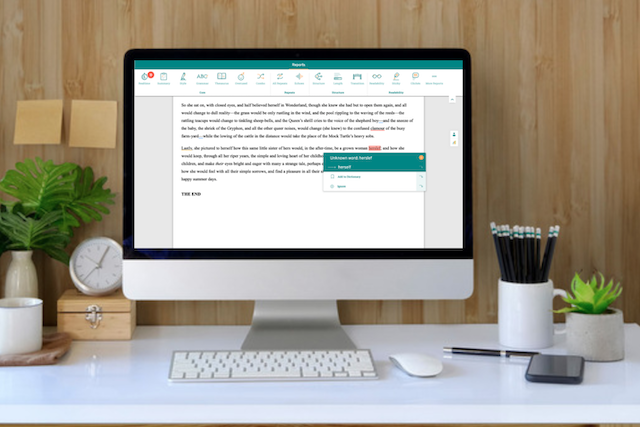
You need not be a member of One Direction to go solo. If you’re a writer, you can do it by publishing independently.
In this article, we’ll examine some of the best reasons to turn your writing career into a solo act. Cue the music!
You Have Total Creative Freedom
Authors who work with traditional publishers must meet the demands of those publishers. That means they might need to alter their stories to conform to certain style guidelines, or perhaps shift plot points based on an editor’s request. Granted, these usually aren’t wild changes, but they are almost always asked for.
Not so with indie publishing. Since it’s just you putting out these books, the only person you need appease is yourself. Creatively, this means you can execute your vision exactly as you’ve imagined it. Whatever you decide you want in your book goes into your book, and that’s the end of it.
Of course, as Uncle Ben said, with great power comes great responsibility. Just because you’re the creative head honcho doesn’t mean you should refuse feedback. Share your writing with a writers’ group, hire an editor, and use ProWritingAid to ensure your prose is the best it can be.
Just because you've written 'The End' doesn't mean you've finished.

But remember also that you call all the shots when it comes to the finished product.
Creative freedom extends beyond what’s written on the page. For example, indie authors have the final say over their book covers, which isn’t always the case for traditionally published authors. Sure, publishers might consult with authors about what appears on the cover. But ultimately the cover is up to them, not you. As an indie, you can hire someone and work directly with them—or even design it yourself, if you feel so inclined.
Furthermore, marketing is up to you. Now that’s definitely different from traditional publishing, in which the marketing of your book is out of your hands. Again, you might be consulted, but even that is a long shot. The marketing department of any publishing company will advertise books any way they like. And they’ll put far more of their firepower behind the new Atwood or King book. As an indie, your book’s marketing is entirely up to you.
You Get a Direct Line to Readers
You might’ve heard of the concept of “gatekeepers” before. If not, a gatekeeper is any intermediary between an artist and an audience.
The word itself suggests division, though that’s perhaps a bit unfair to the gatekeepers (we’re talking agents, editors, and publishers). They’re ideally there to ensure only the best of the best gets published. Ideally. But the truth is, gatekeepers also want to make money. That means that, in many cases, potential marketability and profitability get priority.
Not so with indie publishing. Independent authors offer their work directly to readers, which is a pretty alluring option. Rather than finding an agent and a publisher that both think your work is worthwhile—ahem, marketable and profitable—indie authors go straight to readers.
You Can Publish on Your Schedule
Time. Nobody has enough of it. Especially not publishers.
One of the key downsides of traditional publishing is how glacially slow it tends to be. Between writing your manuscript, improving it, finding an agent, finding a publisher, then finally getting published, it might be years before anyone reads your work.
Indie publishing tends to be a faster process. Since you’re only publishing your own work, there’s no need for your book to wait in line to be published. Of course, that’s not to say you’ll speed through the publication process; you’ll still need to write your manuscript, edit your work, all that. But at least it’s all based on your schedule, not someone else’s.
Some indies use this freedom to great effect. For example, I have a friend who published not one, not two, but three entire books, all in one year. Unless you’re James Patterson, no traditional press is churning out that many copies of your book to anybody. As an indie, you have the freedom to publish as much as you possibly can, whenever you can.

You Retain All Rights to Your Work
When you publish traditionally, you’re selling the rights of your work to publishing companies. Makes sense. They’re doing a service to you by distributing your work. But with this privilege comes some limitations.
For example, I recently self-published a short fiction collection. It features both new and previously published short stories. Nevermind the fact that it would’ve been difficult just to get a short story collection published traditionally to begin with. There’s also the added element of ownership. Since I’m the sole publisher of the work, I can reuse those short stories wherever, however, and whenever I like. In traditional publishing terms, I’d have to work with the publisher to make this possible. Even though I’m the author of the works.
Now that’s just a tame example. Though rare, I’ve heard horror stories about writers working with big publishers.
For example, a friend of a friend worked with a major publisher to have the first book in a trilogy published. His book did moderately well, but apparently not well enough; the author was informed by the publisher that books two and three wouldn’t be released. However, since the publisher had purchased the publishing rights to those books, they couldn’t be published by anyone else. So that left this poor writer’s trilogy incomplete.
Again, that’s an extreme and rare case. But I think it illustrates a point some writers don’t even consider: Traditionally published authors are selling a piece of their intellectual property to their publishers. Indies are not entirely immune to this conundrum, either, but for the most part, they’re far less affected by it.
You Still Have the Traditional Option
The Martian. Fifty Shades of Grey. Eragon.
These books began life as indies. After initial success, they went traditional. How?
It’s back to marketability and profitability. If you indie publish a book and it sells well, publishers are far more likely to purchase it and give it wider distribution. So, in a weird way, indie publishing can help demonstrate a book’s worthiness to publishers. Since it’s your book and you own the rights, you should have no issue transferring those rights to a bigger publisher should you wish to.
It doesn’t really work in the opposite direction. If your book is traditionally published, the publishing house usually owns those rights for many years, if not decades. So unless you agree to an unusual contract upfront, you usually can't go traditional to indie. However, indie to traditional is almost always an option.
Closing Thoughts
For my money, indie publishing is the way to go. You'll get more creative freedom, and your book will be truly yours. So, are you ready to go solo and become an indie author? Try it!


